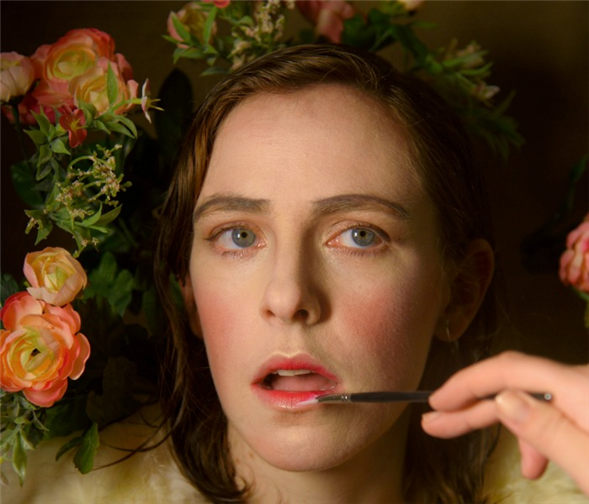Translate Page

Performer and playwright Eliza Bent shares the backstory of her new solo show
---
Welcome to Behind the Scene, TDF Stages' ongoing series where theatre artists write about their creative process.
Last summer I was at a dinner party recounting one of my tried-and-true tales. It's about a home movie I made at age 11 in which I portrayed Queen Liliuokalani, the last reigning monarch of Hawaii. The story isn't so much about the film but how, as a teen, I sent it to PBS when I heard the channel was airing a documentary about Liliuokalani. Spoiler alert: PBS didn't use my submission. But as I watched that program, I realized that I hadn't quite grasped the nuances around the history of the Queen. In fact, I'd gotten some parts of her story pretty wrong -- hilariously and heartbreakingly so.
As I told this old story about my artistic comeuppance and youthful folly, I added a new detail to the narrative: How it would be verboten for a white youth today to portray a historical figure of another race. When I made the movie in 1993, the fact that I was a white girl playing a Pacific Islander was never questioned or discussed. Apparently I hit on something, because my listeners began to share their own embarrassing experiences with cultural appropriation.
In the weeks that followed that dinner party, I marveled at my obtuseness. How did it take me so long to recognize the race problems of that home movie? What other mistakes had I made and not comprehended?
I had an impending commission from Abrons Arts Center with a carte blanche to do whatever I wanted. The only hitch: the theatre needed a title for its season announcement right away. I wondered, could I make something around that home movie? Impulsively, I jotted off an email with the title Aloha, Aloha, or When I Was Queen before even writing a single sentence of the show. Now I was in trouble.
When I sat down to start, the obvious thing to do was describe the home movie in all its uncomfortable detail -- but that was only about 15 minutes of material. So I began exploring race as related to my upbringing, and how that intersects with class and gender. Soon I was examining instances when I have acutely felt my privilege or noticed the racism of others. I had a treasure trove of examples to draw on, instances when coded language was thrown my way, or when other white people assumed I agreed with their problematic views, and how I did or didn't deal with these incidents.
During this developmental process, my director, the fearsome Knud Adams, gently asked: "But what's your stake in these stories?"
We talked. And then we talked some more. And I revealed a large gaffe from a few years ago -- a painful one that I really didn't want to discuss. "Well, that's what you should write about!" Knud said. "Because it's your butt on the line."
Like me, Knud is white. I'd asked him to direct the show long before I had a title or knew that it would center on issues of white privilege. But Knud is also gay. Good thing, because that gaffe, the one I didn't want to talk about, relates to my heteronormative cisgender privilege in relationship to gay men.
Sometimes intersectionality -- the idea that race issues cannot be divorced from matters of class, gender, sexual orientation, and disability -- lines up in narratives in tidy ways. But life's complicated. I am not interested in tying a cute theatrical bow for audiences, but rather in telling some stories about times I've messed up in the hope it will prod people to think about their own messy pasts -- and maybe even learn from them.
---
Eliza Bent is a playwright, performer, and sometime pundit. Follow her on Instagram at @getbentobox. Follow TDF on Instagram at @officialtdf.
Top image: the author in Aloha, Aloha, or When I Was Queen. Photos by Knud Adams.
TDF MEMBERS: Go here to browse our latest discounts for dance, theatre, and concerts.